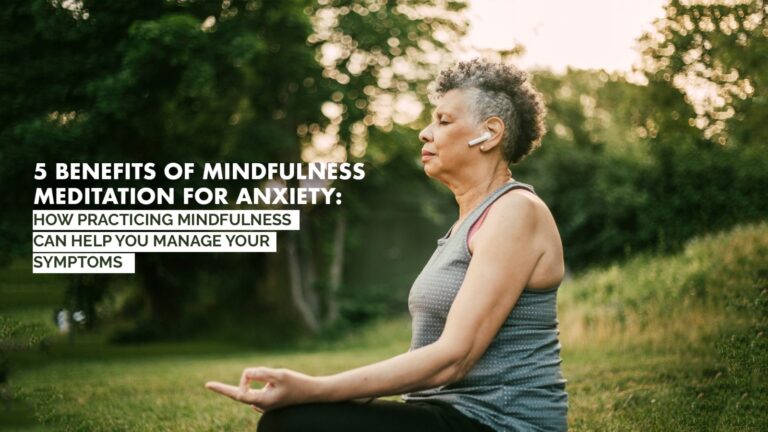“Mindfulness is the awareness that arises through paying attention, on purpose, in the present moment, non-judgmentally.” – Jon Kabat-Zinn
Anxiety is a prevalent mental health issue that affects millions of people worldwide. It can be triggered by various factors, including stress, trauma, and even genetics. The good news is that there are effective tools that individuals can use to manage their anxiety symptoms. One such tool is mindfulness meditation, which has been shown to have numerous benefits for mental and physical health. By cultivating a present and focused mindset, individuals can learn to regulate their emotions, reduce stress levels, and increase resilience. In this article, we will explore five benefits of mindfulness meditation for anxiety and how practicing mindfulness can help individuals manage their symptoms effectively.
Connect & Cultivate is a non-profit organization based in Dallas, TX, that aims to help people develop essential skills such as public speaking and leadership. Our organization believes that mindfulness is a crucial aspect of personal and professional growth. By practicing mindfulness meditation, individuals can learn to cultivate a more present and focused mindset, which can lead to better decision-making and improved mental well-being.
Reduces Stress Hormones
One of the most significant benefits of mindfulness meditation for anxiety is its ability to reduce stress hormones in the body. When we experience anxiety, our body’s stress response is activated, causing an increase in cortisol and adrenaline levels. These hormones can have a harmful effect on our physical and mental health over time, leading to various health problems such as heart disease, obesity, and depression.
By practicing mindfulness meditation, individuals can learn to regulate their stress response and reduce their cortisol and adrenaline levels. This can lead to improved mental and physical health, reduced anxiety symptoms, and a greater sense of calm and well-being.
Increases Emotional Regulation
Another benefit of mindfulness meditation for anxiety is its ability to increase emotional regulation. When we experience anxiety, we often feel overwhelmed by intense emotions such as fear, anger, or sadness. These emotions can be challenging to manage and can lead to impulsive behavior and irrational thinking.
Through regular mindfulness meditation, individuals can learn to cultivate a more mindful and present mindset, which can help them regulate their emotions more effectively. By learning to observe their thoughts and feelings without judgment, individuals can learn to respond to their emotions in a more rational and healthy way.
Enhances Self-Awareness
Practicing mindfulness meditation can also enhance self-awareness, which is the ability to observe one’s thoughts and feelings without judgment. This can be particularly helpful for individuals with anxiety, as it can help them identify the triggers that cause their anxiety symptoms.
By becoming more aware of their thoughts and feelings, individuals can learn to recognize when they are experiencing anxiety and take steps to manage their symptoms proactively. This can include practicing mindfulness meditation, engaging in self-care activities, or seeking professional help when necessary.
Improves Sleep Quality
Anxiety can often lead to sleep problems such as insomnia or disturbed sleep. This can have a detrimental effect on an individual’s mental and physical health over time, leading to fatigue, irritability, and reduced productivity.
Practicing mindfulness meditation can help individuals improve their sleep quality by promoting relaxation and reducing stress levels. By practicing mindfulness before bedtime, individuals can create a more calming and peaceful mindset, which can help them fall asleep more easily and stay asleep longer.
Increases Resilience
Finally, practicing mindfulness meditation can increase resilience, which is the ability to bounce back from challenging situations. Individuals with anxiety often struggle with feelings of overwhelm and helplessness, which can make it difficult to cope with stress and adversity.
By practicing mindfulness meditation, individuals can learn to cultivate a more positive and resilient mindset, which can help them cope with anxiety symptoms more effectively. By learning to observe their thoughts and feelings without judgment, individuals can develop a greater sense of self-awareness and self-compassion, which can be a powerful tool for managing anxiety symptoms.
In conclusion, mindfulness meditation is a powerful tool that can help individuals manage their anxiety symptoms effectively. By reducing stress hormones, increasing emotional regulation, enhancing self-awareness, improving sleep quality





